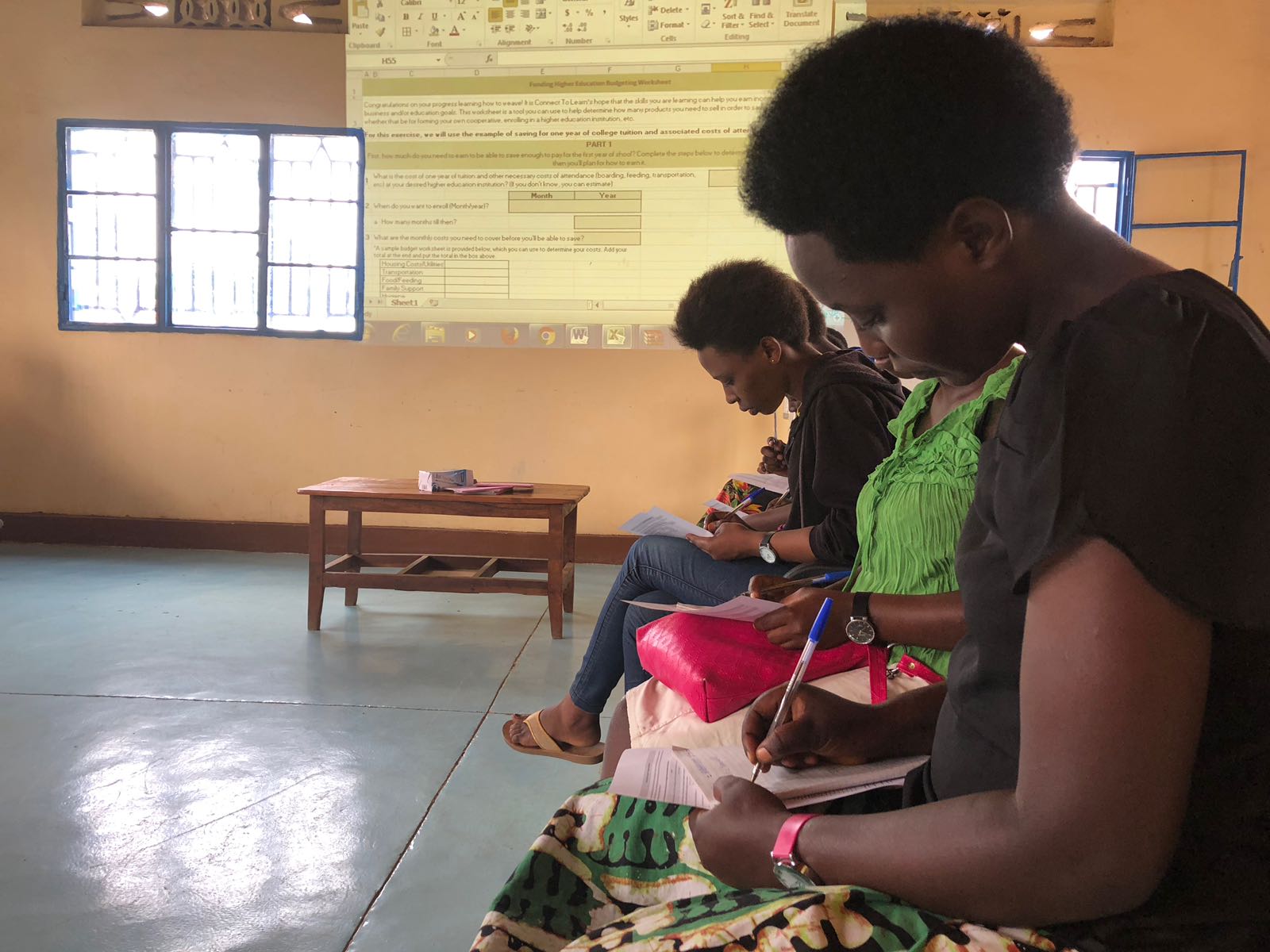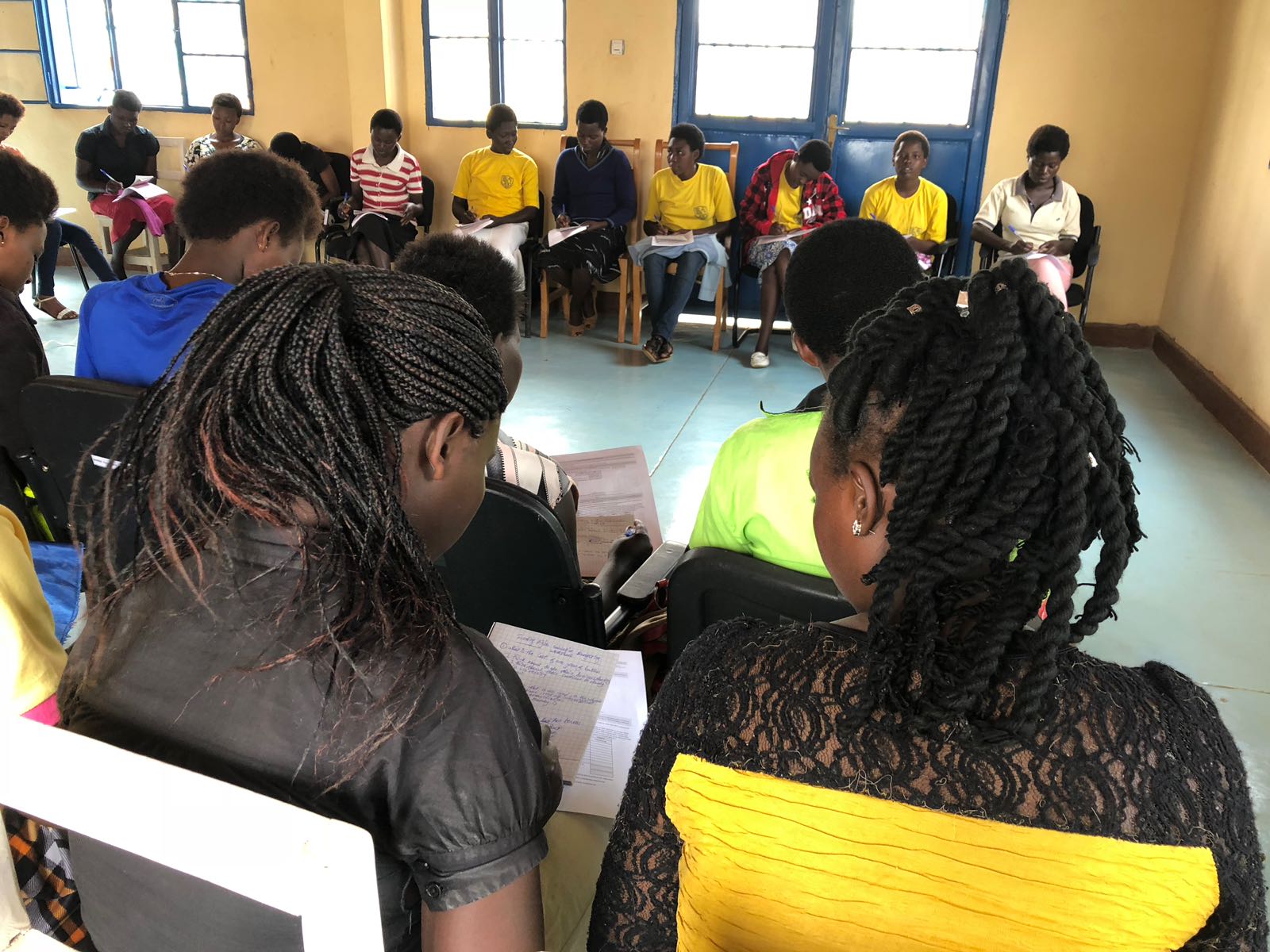Rwanda—Recent secondary school graduates from Rwanda – young women who were part of the Millennium Villages Project – are opening businesses through the Connect To Learn Initiative. Connect To Learn, supported by the Gross Family Charitable Foundation and Blue Chip Foundation, first launched its secondary school scholarship program in 2012 to assist 40 students with the financial costs associated with six years of secondary school.
Rwanda’s limited opportunities for women threatened to hold back the graduates, whose studies concluded in December 2017. Because the transition from secondary school into the workforce is a difficult one, particularly for young women, Connect To Learn launched another initiative – one that trains women in practical applications such as financial planning and budgeting, business planning, marketing, photography and traditional basket-weaving.
“We worked with the Millennium Villages Project both in Rwanda and several other African countries,” said Blue Chip Foundation founder Jennifer Gross, “to help ensure that these girls could have the educational opportunities they deserved. What we found was that the girls thrived through education. They were eager to learn and committed to succeeding every step of the way. Now, they’re receiving vocational training and learning how to start and manage their own businesses.”
Enabling these young women to create their own businesses does more than bring in income.
Fidela Mokandinda, one of the Connect To Learn beneficiaries, said, “If I have money, I am able to work to create a business, to increase my skills from weaving and increase products. I can increase savings, and then after, I will go to study at university because I have money.”
Mokandinda isn’t alone. Other women who benefit from Connect To Learn’s training are building their futures, as well.
Yvette Murekatete, who weaves baskets to sell, said, “What can I do so that I can put in place my goals? My choice today is to prepare my destiny.”
The vocational, business, and other skills the women learn through Connect To Learn’s work can help them stash away savings for higher education in a country where secondary school doesn’t adequately prepare them for much more than exit exams for graduation. Further, the quality of education the schools provide isn’t enough to earn them higher education scholarships, leaving them to fend for themselves when it comes to university tuition.
Connect To Learn also provides vocational skills training in Nigeria and Kenya, as well as broadband technology and learning resources for young men and women across 10 African countries.
“The training and further education these young women are receiving through Connect To Learn is
empowering them. Connect To Learn is also identifying distribution channels in the U.S. and abroad for the women to sell the goods they make, and over time, they’ll receive training on how to manage those directly, as well,” said Gross.






